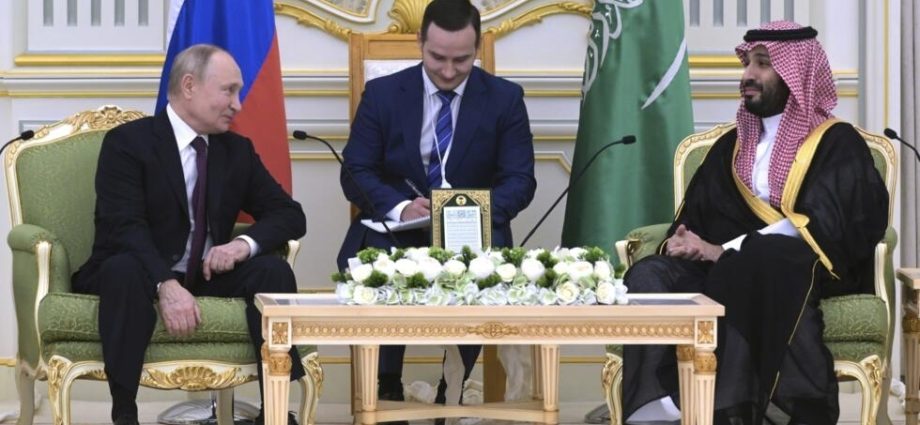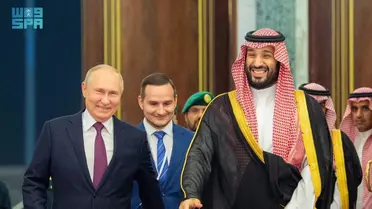Saudi Crown Prince Mohammed bin Salman and Russian President Vladimir Putin, in a joint statement after their meeting on Wednesday, highlighted the need for all OPEC+ countries to adhere to the group’s agreement on output cuts, saying it would serve the interests of the global economy.
On November 30, OPEC+ oil producers agreed to voluntary output cuts approaching 2 million barrels per day (bpd) for early next year.
During the meeting, which was their first since October 2019, the two leaders voiced the importance of boosting cooperation in various fields including oil and gas, technology and communications.
Highlighting the strong economic ties between the two countries, Putin and MBS praised the increase in the volume of bilateral trade, noting that it increased at a rate of 46 percent in 2022 compared to 2021.
They also affirmed their keenness to strengthen joint work to further diversify trade and increase communication between the two countries’ private sectors to help translate trade and investment opportunities into active partnerships.
They also discussed the Israel-Hamas war and the deteriorating humanitarian situation in the Gaza Strip where the conflict has claimed the lives of at least 16,015, according to Gaza’s medics.
In addition to stressing the need “to stop military operations in the Palestinian territories,” they also called for protecting civilians in line with international law and international humanitarian law.
Israel continued to battle Hamas militants in the strip’s biggest cities on Thursday and said it had attacked dozens of targets, leaving Palestinians struggling to survive in a situation the United Nations described as “apocalyptic.”
The UN Palestinian Refugee Agency (UNRWA) said 1.9 million people – 85 percent of Gaza’s population – had been displaced, its shelters were four times over capacity, and there was not enough aid to meet “the overwhelming needs.”


